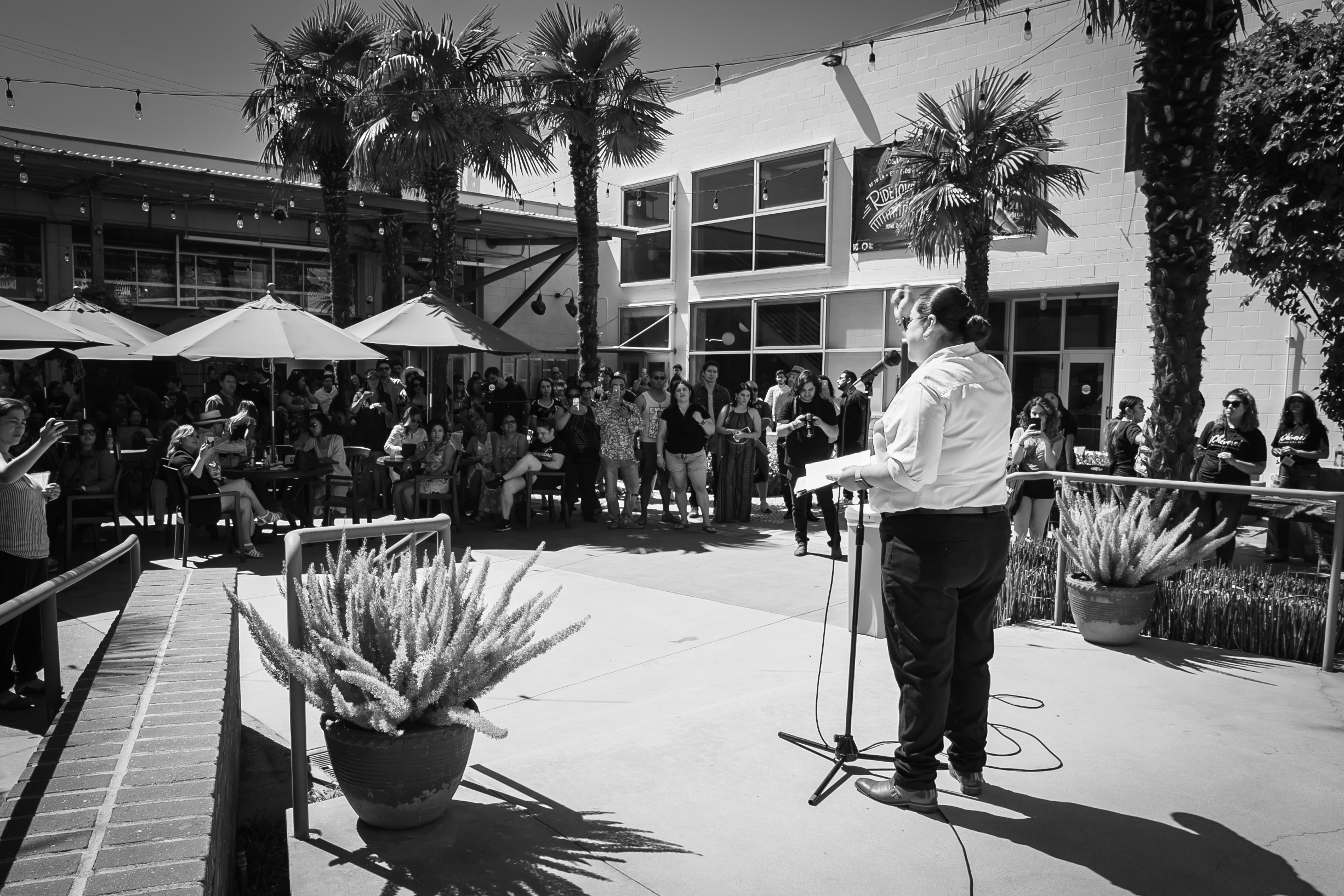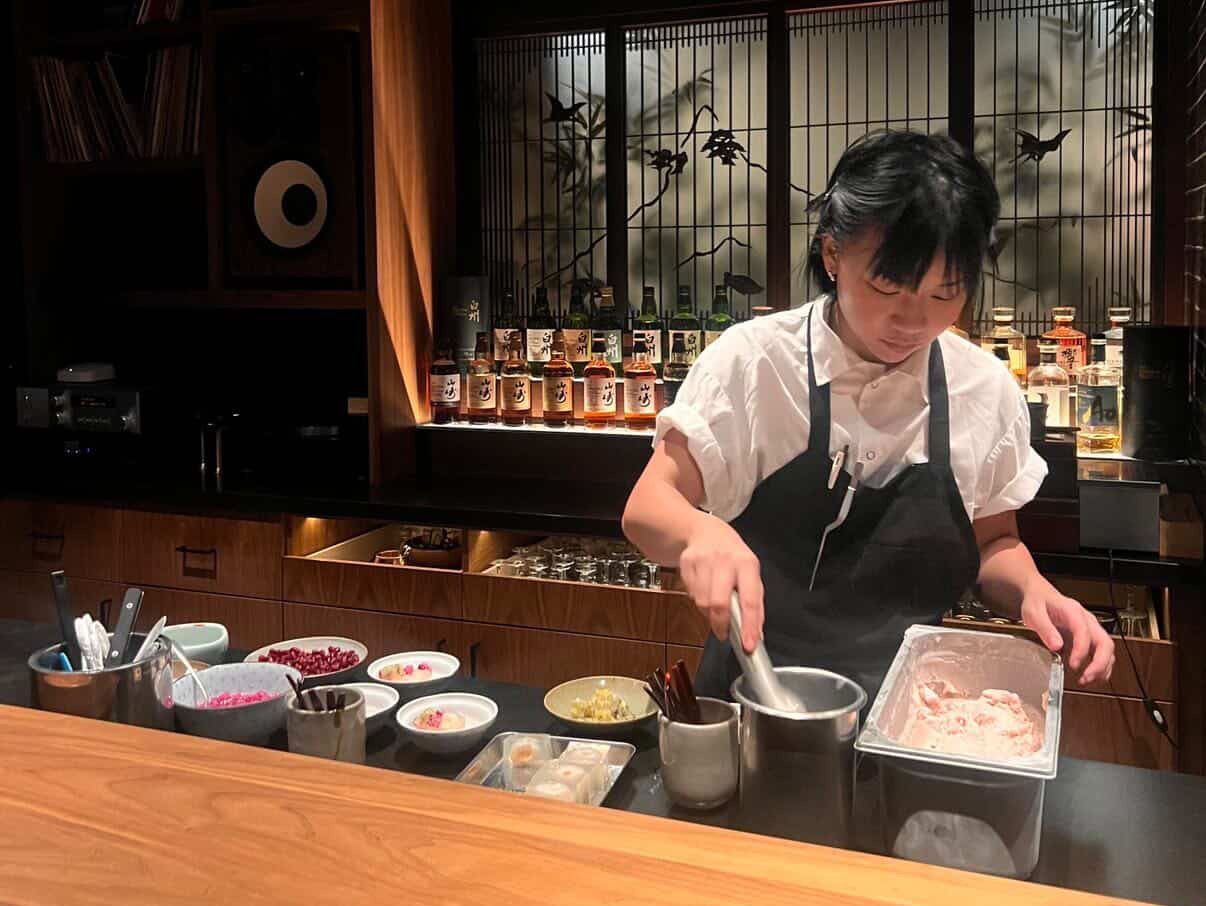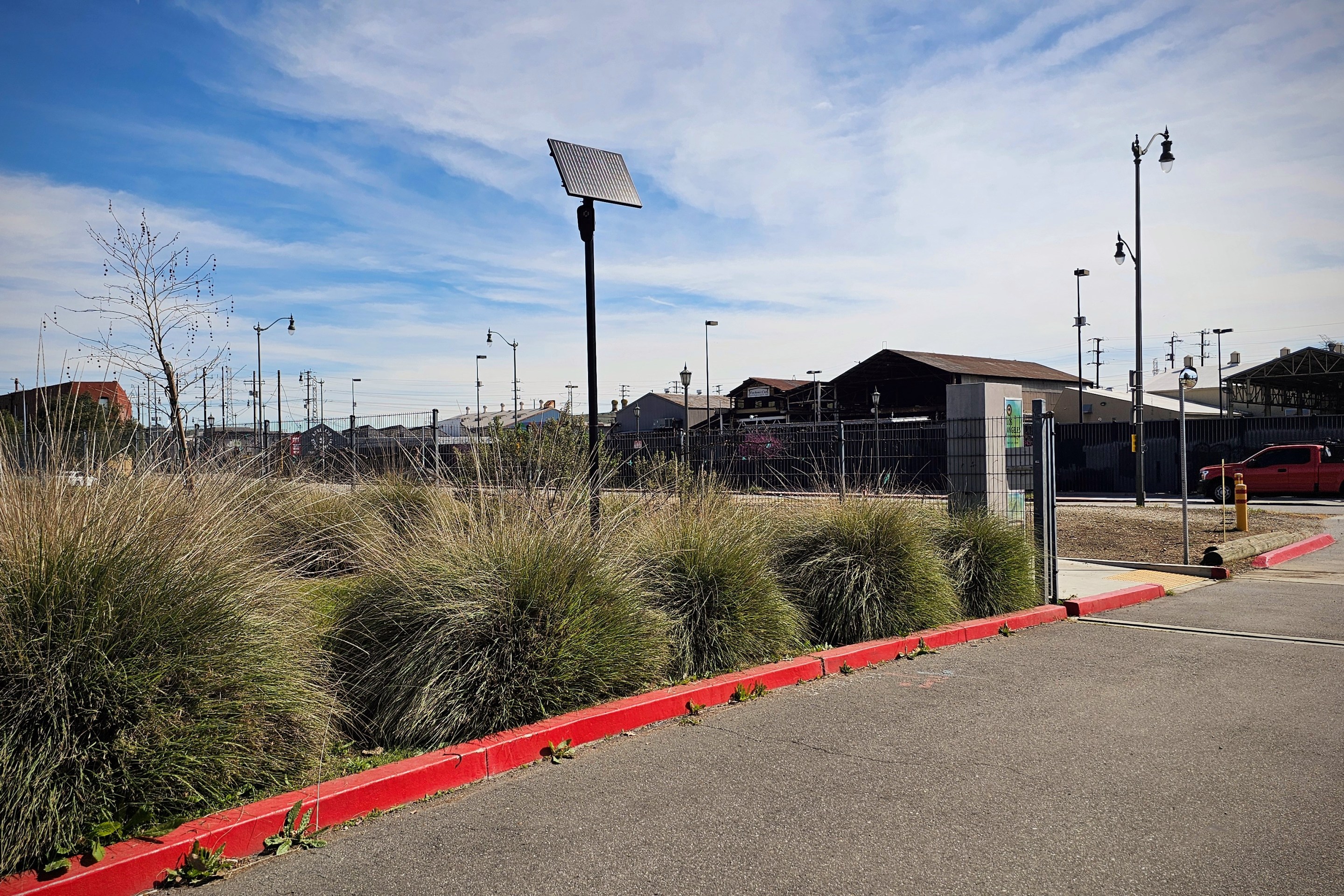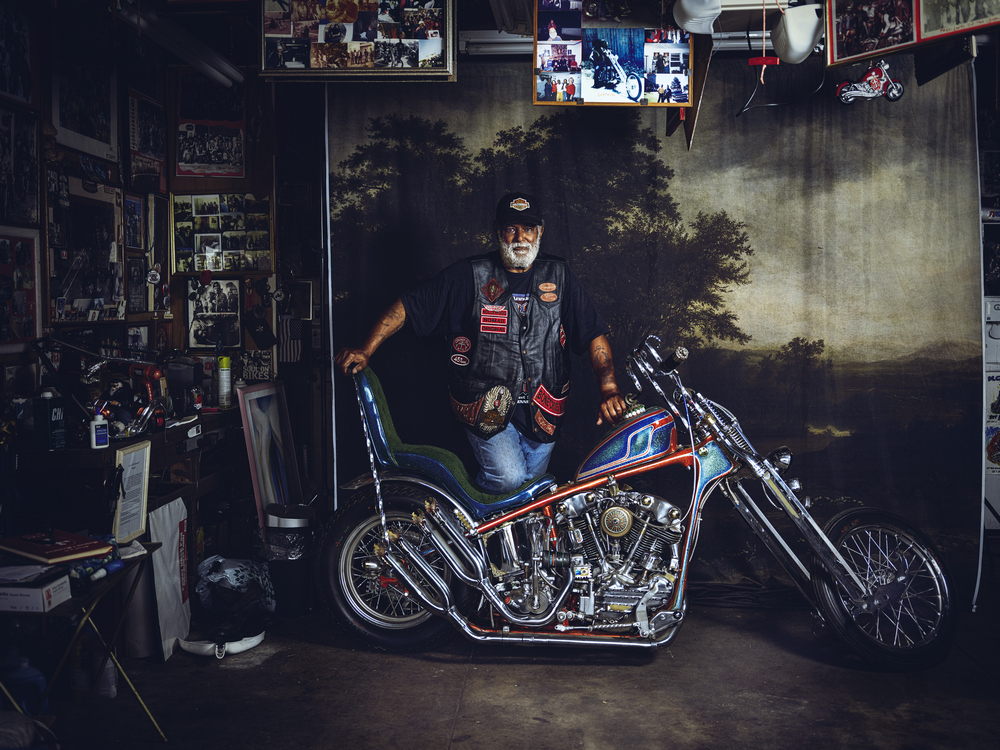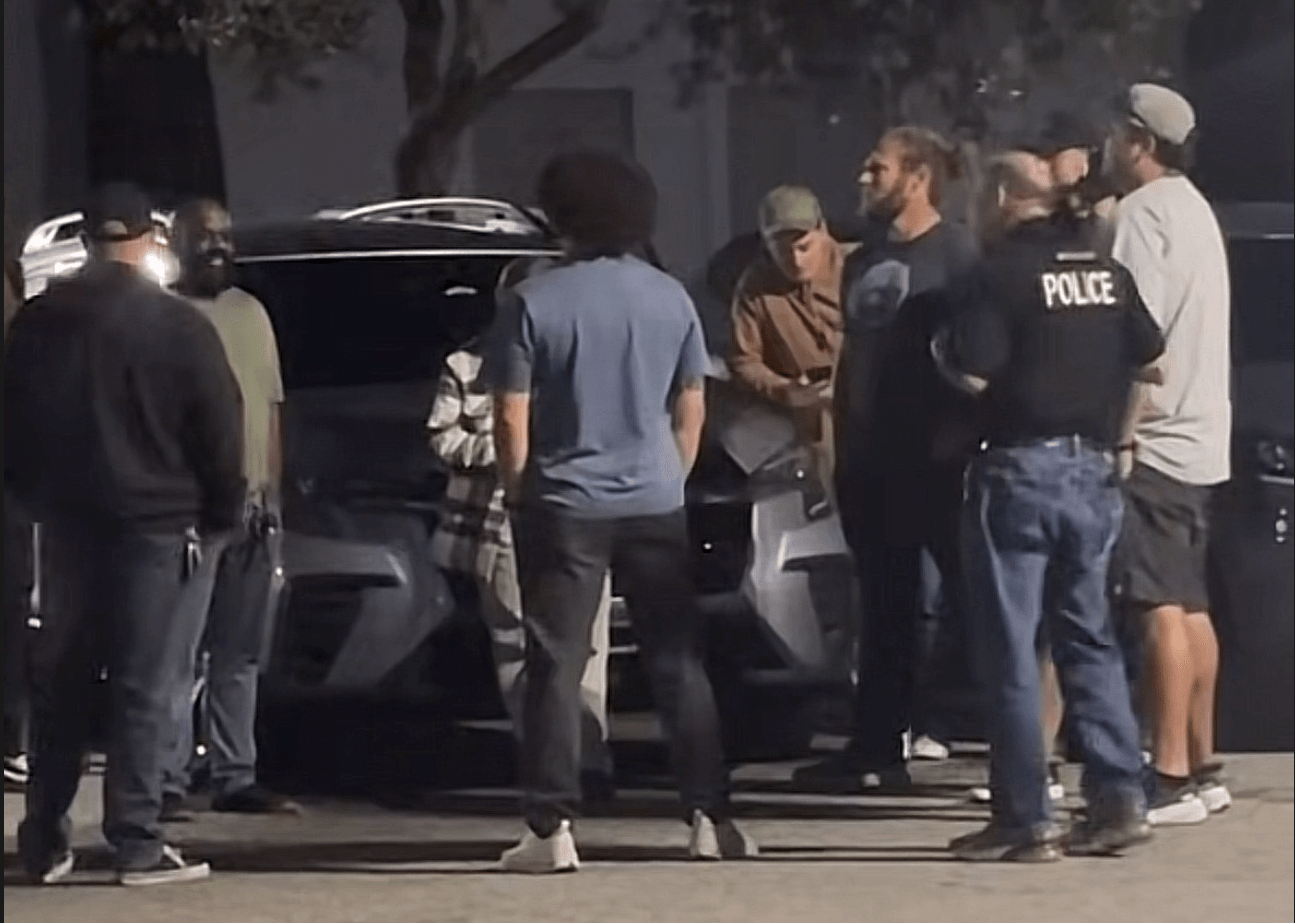[dropcap size=big]I[/dropcap]n a country where the words ‘El Salvador’ may bring up images of immigrants seeking asylum or gang-based fear tactics used by Donald Trump to become elected president, the proud Salvadoran-American Cynthia Gonzalez stands strong.
She is the founder of Salvies Who Lunch (SWL), a platform dedicated to empowering Salvadorans and Salvadoran-Americans in Los Angeles and highlighting their positive roles as business owners, entrepreneurs, artists, educators, and everything else in between. As a result, she is helping to change the mainstream media’s perception of Salvadoran people.
“Let’s be a mentor because our youth is the future. If we don’t keep passing down that pride, se van a perder,” (they’re going to get lost). Gonzalez said in a speech at her annual community and networking event, Chévere.
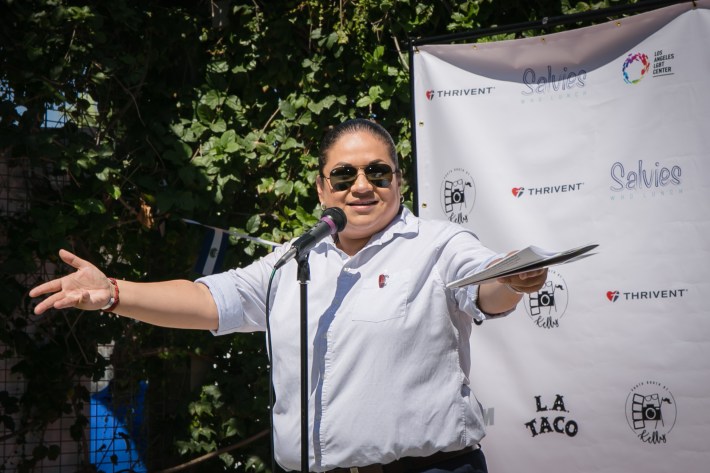
Gonzalez was born in El Salvador and raised in South L.A. In addition to being the founder of SWL, Gonzalez is currently the Entertainment Director for CineArte, a Queer Latinx film and art festival, and an Operations Manager for Lil Libros, an independent publisher for bilingual children’s books.
What started off as a hashtag at the beginning of 2018 quickly transformed into a platform, where Salvies—a term used by the community to identify someone who has roots in El Salvador—and people from all walks of life can connect with one another by promoting each other's art, businesses, and events. To take it one step further, Gonzalez also coordinates an annual event under SWL called Chévere, where she celebrates Salvadoran people, culture, and of course, pupusas.
The smell of toasted masa and cheese wafted through the air and there was plenty of Kolashampan.
Chévere celebrated its second year on Saturday, July 20th, at the Los Angeles LGBT Center. On the day of the event, there was a line wrapped around the building to get in. People from as far as the Bay Area, New York, and Washington D.C all came together at a time when El Salvador needs community the most. “Llego toda la Mara!” Gonzalez repeated throughout the day. This Spanish term simply means “group,” though it has been appropriated by people to be affiliated by the notorious gang in El Salvador.
“It’s our time baby. It’s the year of the Salvie.”
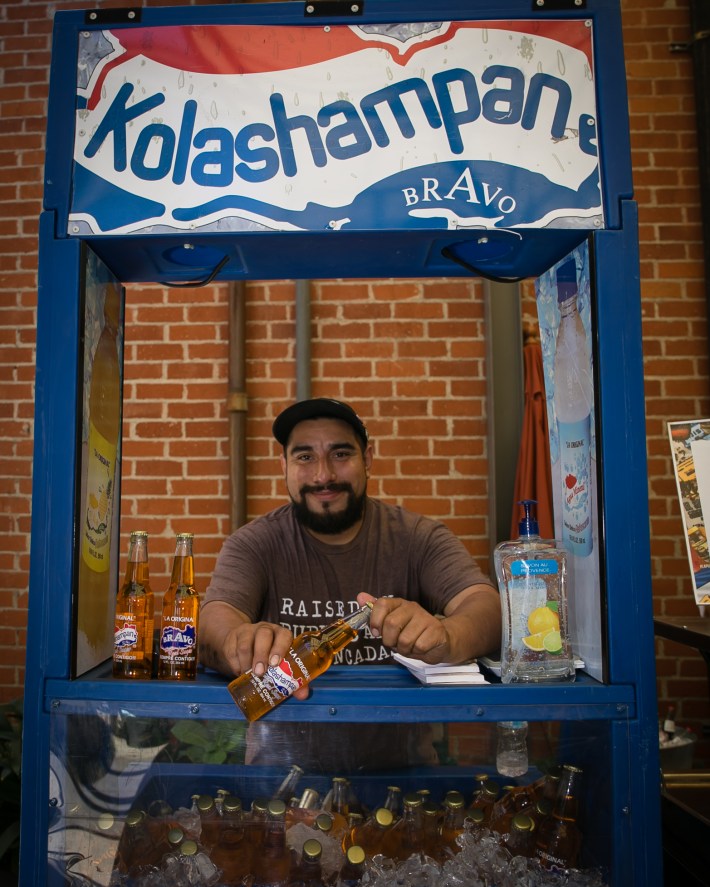
At the event, there was talking, laughing, dancing, bargaining, and lots of eating. The smell of toasted masa and cheese wafted through the air and there was plenty of Kolashampan, the famous Salvadoran soda, to keep cool under the heat.
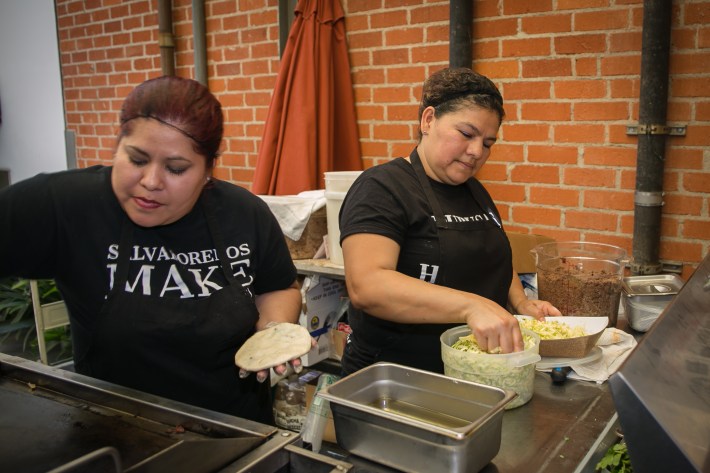
When you have a room full of Salvies, you are guaranteed to overhear stories of the Salvadoran Civil War. This event was no different. We all remembered and honored all those who were killed between 1980 to 1992—over 75,000 civilians—at the hands of the Salvadoran and American government. After all, it is deeply woven into the lives of most, if not all, Salvadorans due to the trauma, violence, and poverty many still face today in the war’s aftermath.
The amount of pain and loss rooted in our history often makes us forget the beauty and strength we harness in our resilience as Salvadorans.
This is no different for Cristian Quintanilla who was tabling during Chévere for his specialty coffee brand, Don Leo Café. He explained that back in the 1970s–80s, 50-percent of El Salvador’s Gross Domestic Product (GDP) came from coffee. All of that changed when the social revolution happened, which resulted in the military and economic elites owning most of the land. This left little to nothing for the farmers and caused greater inequality.
In 2019, El Salvador supplies chains as big as Starbucks with quality coffee, though it is roasted and processed in other countries. Quintanilla takes pride knowing Don Leo’s Café is all grown, processed, roasted, ground and packaged by the farmers who also source the coffee.
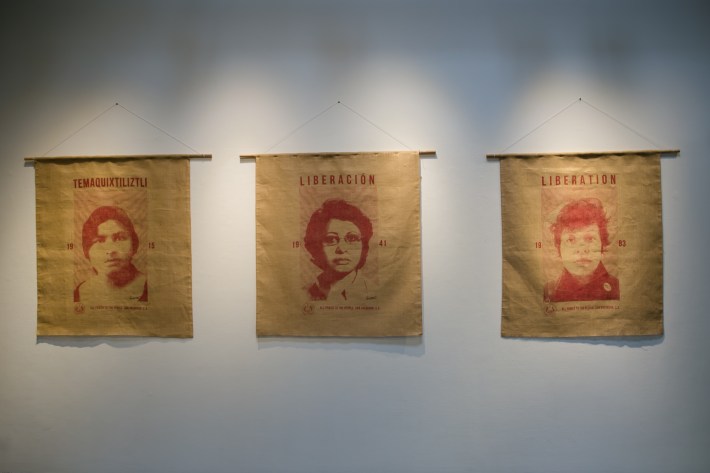
Quintanilla’s long-term goal is to create more organic coffee programs in El Salvador and increase revenues for its hard-working coffee farmers. “It is my goal to bring jobs and opportunity to change the image globally and this is my way of disrupting the industry,” Quintanilla says. Politics has and always will play a major role in the lives of Salvadorans, as evident with Quintanilla’s coffee anecdote, even during our daily dose of café con pan.
READ: Blood Is Thicker Than Coffee: Meet the Family Behind L.A.’s 100-Percent Salvadoran Coffee Roasters
As the political climate continues to intensify in the United States, it is now more important than ever that Salvadorans stick together. The amount of pain and loss rooted in our history often makes us forget the beauty and strength we harness in our resilience as Salvadorans. Through Salvies Who Lunch and Chévere, Gonzalez reminds us of the reasons we continue to show up in spaces we are not always welcomed in.
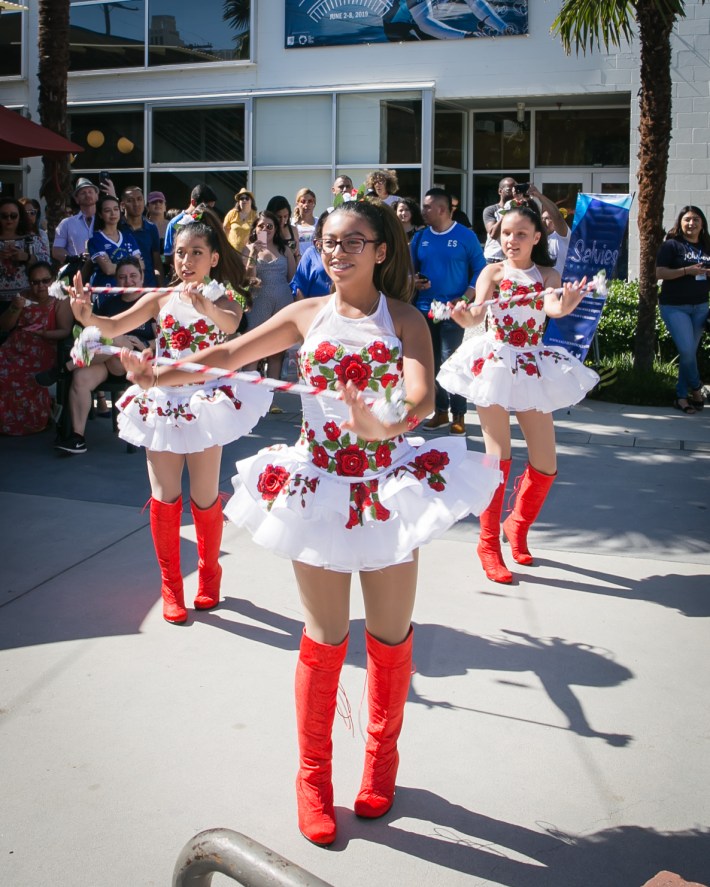
As the day went on, a fresh breeze kicked in, the sun settled into an orange hue, and the performances came to an end. Dj Quick closed out the night with a cumbia set for the afterparty, because if Salvies can’t get together and dance, then what’s the point? I turned over to Gonzalez while she soaked in her proud moment of yet another successful event and asked, “How do you feel?” She simply smiled and said, “I’m happy.”
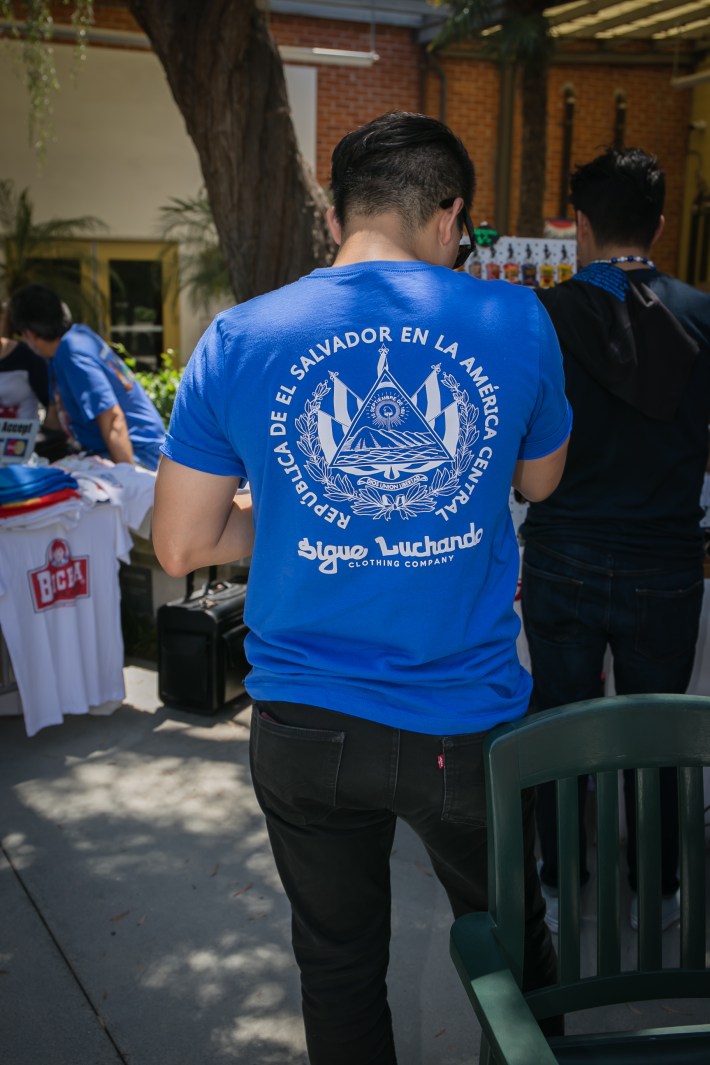
You can find Gonzalez and the Salvies Who Lunch team celebrating Hispanic Heritage Month on September 21 at Macy’s in the Baldwin Hills Crenshaw Plaza. She is also working closely with the founders of Lil Libros, Patty Rodriguez and Ariana Stein, to release a bilingual children’s book titled San Salvador. This will be one of the first two books from their new series titled Vámonos, that highlights underrepresented cities in Latin America. Its expected release date is March 2020.
For more information, visit Cynthia Gonzalez’s Instagram or website.
